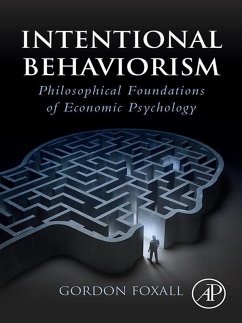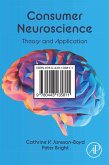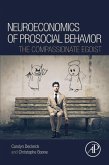Intentional behaviorism is a philosophy of psychology that seeks to ascertain the place and nature of cognitive explanation of behavior by empirically determining the scope of an extensional account of behavior based on the limitations of a behavioral approach to explanation. This book draws on an empirical program of research in economic psychology to establish a route to a reliable and justifiable intentional explanation of behavior. Since the cognitive revolution in psychology, intentional explanations of behavior have become the norm, and as the methodology that provides the normal science component of psychology, cognitivism is sometimes accepted relatively uncritically. However, there is a lack of understanding of the role of psychological research in determining the place and shape of intentionality. This book explicates the philosophy of psychology that the author has devised and applied in his work on economic psychology and behavioral economics. Given the provenance of intentional behaviorism, economic and consumer psychology forms the primary application basis for the book.
This book provides a theoretical background to understanding how and why consumers make the choices they do. The book integrates behavioral economics, consumer psychology, and decision-making research to explore intentional behaviorism, which is proposed as a philosophical framework for consumer psychology, viewing economic behavior in the contexts of modern human consumers in affluent marketing-oriented societies.
- Integrates research in behavioral economics, decision-making, cognitive psychology, and consumer psychology.
- Offers readers an interdisciplinary look at intentionality and intentional explanations.
- Proposes a theory of intentional behaviorism to explain economic behavior, consumer choice, and other decision-making.
- Examines the methodologies of philosophers of mind such as Dennett and Searle.
Dieser Download kann aus rechtlichen Gründen nur mit Rechnungsadresse in A, B, BG, CY, CZ, D, DK, EW, E, FIN, F, GR, HR, H, IRL, I, LT, L, LR, M, NL, PL, P, R, S, SLO, SK ausgeliefert werden.









